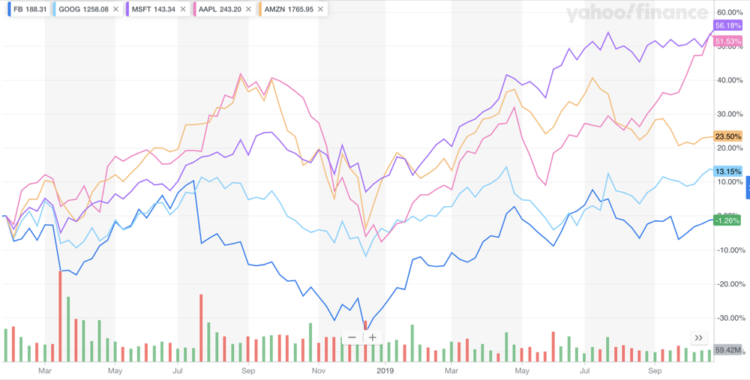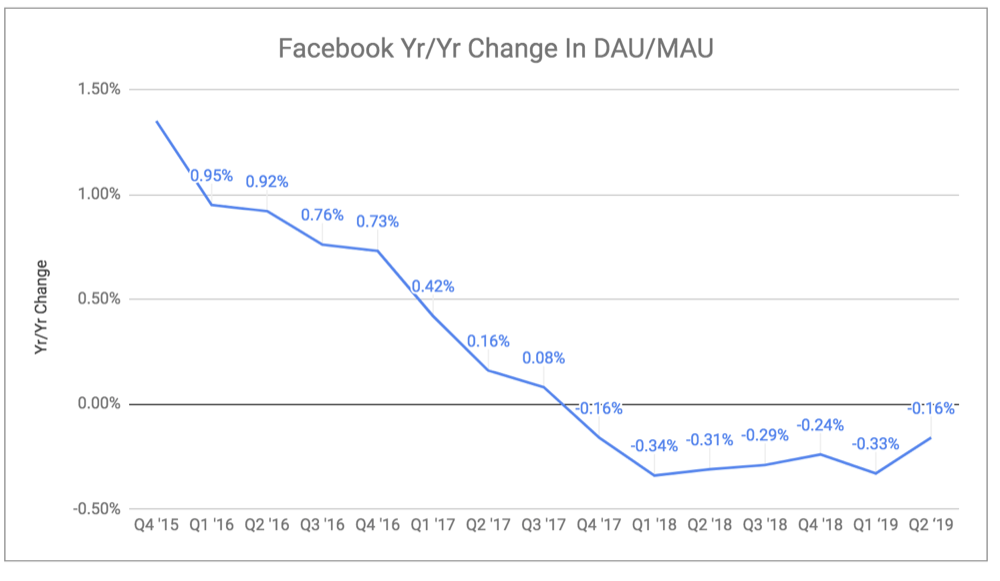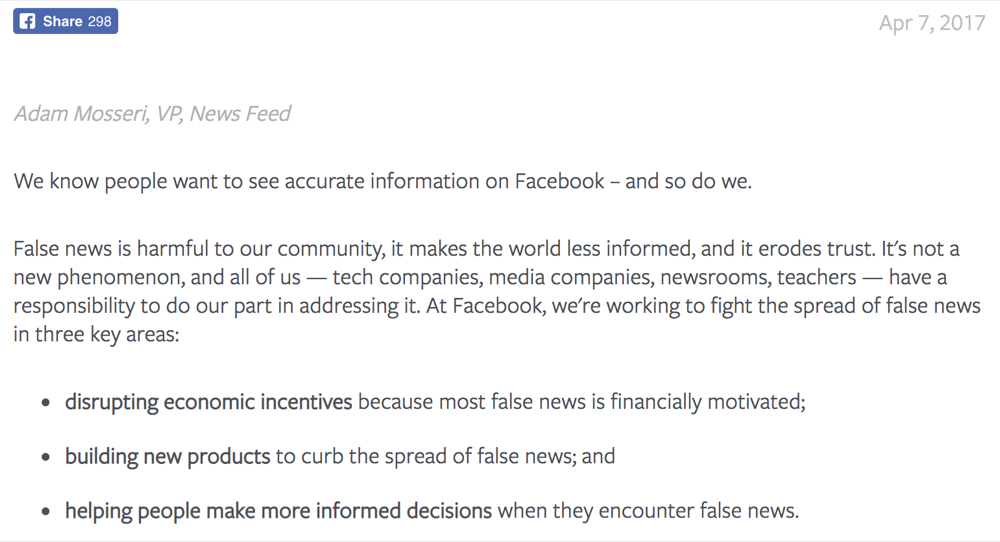I’ve been following Facebook since I called Mark Zuckerberg in 2004, a month after launch, and offered to buy the company (I was running Bolt at the time). In March, 2010, I published the first Wall Street style research report on Facebook on Tumblr, with a $100 billion five year price target (it was actively trading in the private markets at $16B). My 2014 revenue forecast was off by just 1%, because I focused on user engagement. As Facebook continued to increase user engagement, I continued to be a bull. I believe social media platforms are either growing engagement, or they’re dying. And for eight years, Facebook was growing user engagement.
But Facebook’s Q4 ’17 earnings, released on January 31st, 2018, revealed the first decline in user engagement in Facebook’s history. Facebook gave the excuse that they were purposefully trying to prevent Facebook users from doing the #1 thing they liked to do on Facebook. Facebook was finally trying to stop fake news. I didn’t care about the excuse. So I turned bearish, penning this blog post to note the occasion.
It’s been 21 months since that post, and Facebook shares have underperformed the NASDAQ (down 1% vs. a 14% gain for the NASDAQ). More telling, Facebook has dramatically underperformed it’s peer group (FAMGA), which averaged a gain of 36% over the past 21 months.
Facebook’s engagement continued to fall for the subsequent five quarters:
But engagement showed a marked improvement in the Q3 ‘19 (up 0.67%). It was great news for Facebook shareholders, but not so great for the rest of the world.
Facebook Caves To Capitalism
If you Google “What is the Goal Of A Company”, the first result states “The primary purpose of a business is to maximize profits for its owners or stakeholders while maintaining corporate social responsibility.” That’s a tough balancing act.
A few months after Facebook reported Q1 ’18 results, in a blog post titled “Working to Stop Misinformation and False News”, Facebook stated:
While Facebook didn’t state when the policy changed, in his prepared remarks following Q3 ’19 results, Zuckerberg clearly retreated from the earlier policy:
Right now, the content debate is about political ads. Should we block political ads with false statements? Should we block all political ads? Google, YouTube, and most internet platforms run these same ads, most cable networks run these same ads, and of course, national broadcasters are required by law to run them by FCC regulations. I think there are good reasons for this. In a democracy, I don’t think it’s right 3 for private companies to censor politicians or the news. And although I’ve considered whether we should not carry these ads in the past and I’ll continue to do so, on balance so far I’ve thought we should continue. Ads can be an important part of voice — especially for candidates and advocacy groups that the media might not otherwise cover so they can get their message into debates. And it’s hard to define where to draw the line. Would we really want to block ads for important political issues like climate change or women’s empowerment? Instead, I believe the better approach is to work to increase transparency. Ads on Facebook are already more transparent than anywhere else. We have a political ads archive so anyone can scrutinize every ad that’s run — you can see every message, who saw it, how much was spent — and that’s something that no TV or print media does.
I get that Zuckerberg is in a tough place. He’s damned if he censures (i.e. he pisses people off who want to spread fake news and he lowers Facebook’s profit) and he’s damned if he allows fake news (i.e. potentially causing the fall of democracies around the world).
While we live in a world today where some CEO’s do the right thing, most corporate chieftains do what Zuck is doing. Is he a horrible person for shirking his moral responsibility? We can each judge for ourselves.
But what is clear, is that a society that massively rewards people and companies for malicious behavior like spreading fake news, is at risk. It’s how we got Trump. It’s how we got Brexit.
By allowing fake news, Zuck isn’t doing anything illegal. In fact, he’s giving people exactly what they want. He’s just like a tobacco company CEO. He has happy shareholders, and let the rest of the world be damned.






